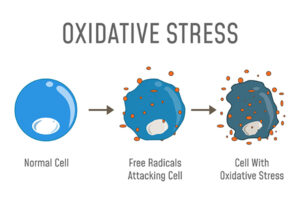
Improving Libido and Male Function, Naturally
‘Issues with male function’ denotes a variety of problems, including those related to impotence and lack of desire. Statistical data
The effect of oxidative stress on male fertility and sperm quality indicators.
Fertility problems are very common, affecting approximately 1 in 6 couples. Researchers estimate that one-third of all infertility cases are due to male fertility problems.
While medical treatment may be necessary, there are a number of changes that can be implemented to improve fertility indicators, including eating a balanced diet, taking dietary supplements, and introducing lifestyle changes.
What is male infertility?
Fertility is the ability to have children without requiring medical assistance.
Male infertility is a situation in which the male has low chances of fertilizing the female egg, often due to the quality of the sperm cells. Yet, there are other factors that may cause male infertility, such as:
Sperm count refers to the number or concentration of sperm cells in a given amount of semen.
One of the essential functions of healthy sperm cells is their ability to swim and/or move forward towards the egg. Sperm motility measures the percentage of sperm cells that are in motion within the semen sample.
Low levels of testosterone (the male sex hormone) may be associated with infertility.
When a male has difficulty with male function (ie it is not possible to develop or maintain an erection).
A decrease in the desire to have marital relations. There are various foods and supplements known as ‘aphrodisiacs’ that contain components that help increase libido.
Infertility may be caused by a number of combined factors and can also be linked to genetic factors, nutritional deficiencies, underlying diseases, environmental pollutants, and even the general state of health.
.
Oxidative Stress and Male Infertility
Oxidative stress is a condition in which the levels of ‘Reactive Oxygen Species’ (ROS) molecules in the body rise and cause damage to tissues and cells – including the sperm cells. This happens when the antioxidant defense system within the body weakens, either due to underlying disease, old age, an unhealthy lifestyle, or exposure to environmental pollutants. (Study 1, 2, 3)
Active oxygen species are constantly created in our bodies, but their levels are kept within safe range by a healthy antioxidant defense system. High levels of reactive oxygen species may cause damage to tissues, an increase in inflammation, and an increase in the risk of developing chronic diseases. There is also evidence that oxidative stress and high levels of reactive oxygen species may lead to male infertility. This is parallel to research which indicates that the consumption of antioxidant components, via diet or supplements, may contribute to fertility.
Oxidative stress in the tissues of the reproductive system is a cause for concern, due to the ability of the active oxygen species to damage the amount of sperm, its motility, its quality and its function. There is also a concern that ROS may damage the DNA of the sperm cells, which may further harm fertility.
Fragility (fragmentation) of the DNA in the sperm refers to the genetic material (DNA) of all the characteristics of the father that is transferred to the embryo upon fertilization of the egg.
There are situations that may cause breaks in the DNA structure and thereby damage its integrity and/or quality. It is known that high levels of DNA fragility may cause the inability of the sperm cell to fertilize the egg (in both natural conception and intrauterine insemination), or cause abnormal fetal development, which may lead to miscarriages or the failure of fertility treatment. It is also known that the sperm quality decreases with age.
Researchers set out to determine if there are new scientific findings that indicate a clear connection between oxidative stress, DNA fragility, and sperm quality. They examined 16,945 sperm samples, which were divided into 7 categories according to age (ranging from 30–55).
The results of the study were as follows:
Researchers concluded that DNA fragility in sperm cells increases with age and seems to be linked to high levels of oxidative stress, as well as a defect in the process of sperm cell formation.
The takeaway? It is important to find out the levels of oxidative stress in the sperm cells, along with defects in the DNA of the sperm – just as important as finding out about chromosomal aberrations in the egg.
Additionally, more studies are needed to evaluate the effect of fatherhood in old age on the male DNA, because these factors have an impact on the health of the offspring.
How can males improve antioxidant levels in their bodies to support fertility?
Adequate consumption of antioxidants in the diet (via food or supplements) may improve the antioxidant defense system in the body, and also within the sperm cells.
[Click here to read extensively about supplements, nutrients, and herbs rich in antioxidants that may contribute to male fertility]
Which vitamins/nutrients help support male fertility?
Vitamin C is a very powerful antioxidant.
Other studies obtained similar results, indicating that Vitamin C may improve fertility indices in men with fertility problems due to oxidative stress (but extensive studies are needed to verify this).
Maca is a plant that grows under stressful conditions in the Peruvian Andes. Maca has been used by the people of the Andes for hundreds of years to improve fertility, libido and male function.
Vitamin D is important for both male and female fertility. Vitamin D may also affect the levels of the hormone testosterone, as per an observational study that found that men with low levels of vitamin D may have lower levels of testosterone in the blood.
High levels of vitamin D may be linked to sperm motility – but this effect is still being researched.
Disclaimer: Medicinal plants are not drugs. The purpose of this article is to provide a general overview of approaches in complementary medicine and the information provided does not constitute a qualified medical recommendation. This article is not intended to diagnose or treat any disease and is not a substitute for medical advice or treatment. Always contact your health practitioner before starting any nutritional supplement programs.

‘Issues with male function’ denotes a variety of problems, including those related to impotence and lack of desire. Statistical data

The effect of oxidative stress on male fertility and sperm quality indicators.
Fertility problems are very common, affecting approximately 1 in 6 couples.

In recent decades, women throughout the world have turned to traditional medicine to balance hormonal function and to treat common
Sign up for our fertility guidance campaign.
Get information, tips, and advice regarding fertility and relationships via email.

כשרות
Vida’s dietary supplements are not medicine. They are not intended to diagnose, treat, cure or prevent any disease. In case of a medical concern, please consult your attending physician.
Vida products are manufactured in a factory that meets the requirements of the GMP for proper manufacturing conditions. The information provided about them has not been evaluated by the GMP.
The information provided on this website is for informational purposes only and is not intended as a substitute for advice from your physician or other health care professional. You should not use the information on this site to diagnose or treat any health problem or condition. Always consult with a healthcare professional before starting any diet, exercise or nutritional supplement program, before taking any medication, or if you suspect you might have a health problem.
Always read the information included with your product for the most up-to-date nutritional information.
FDA Disclaimer: These statements have not been evaluated by the Food and Drug Administration. This product is not intended to diagnose, treat, cure or prevent any disease.
designed by b-splash.com | powered by c-site.co.il
Get information, tips, and advice regarding fertility and relationships.